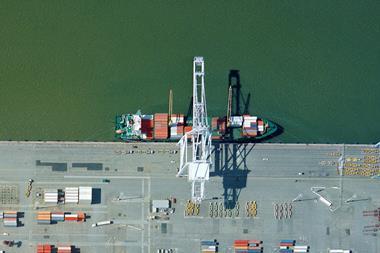Dutch pension funds are keen to increase their allocations to infrastructure significently in the near future, according to some of the largest asset managers in the Netherlands.
APG, PGGM, MN and Blue Sky Group – with combined assets under management of more than €600bn – have noted a growing interest in the alternative asset class, with individual clients willing to increase their allocations by up to 100%.
Ron Boots, head of European infrastructure at the €346bn APG, said: “Most of our clients have an allocation of approximately 2%, but they have allowed us to raise their holdings to 3%, or even more if opportunities arise.”
APG – the provider of civil service scheme ABP – has invested approximately €5bn in total under a worldwide mandate, but focuses on Europe and the US.
It has recently established an infrastructure team in its New York office.
Both APG and the €153bn PGGM said they targeted not only roads but also water companies, sustainable energy, power and gas grids, as well as telecommunications infrastructure, and aimed at returns of between 7% and 10%.
The two largest asset managers, which started investing in infrastructure 10 years ago, made clear that they were gradually moving away from indirect investments to individual projects, to drive down costs and increase their grip on the investments, including their respective duration.
They cited a stable long-term cashflow, managers’ expertise and an inflation link as their main selection criteria.
According to Henk Huizing, PGGM’s head of infrastructure, its five clients with existing investments have indicated that they want to more than double their current holdings of approximately €3.5bn.
He said PGGM was very pleased with its unique joint venture with building company BAM for the construction and co-financing of Europe-wide projects.
“We have almost used up the committed €400m,” he added.
PGGM identified the risk of government policy changes as one of the most important pitfalls for investing in infrastructure.
“For example, our participation in a Spanish solar energy project suffered from a decision to a restrospective subsidy decrease,” Huizing said.
The €90bn asset manager MN has invested €600m in infrastructure for 10 pension funds, including the large metal schemes PMT and PME.
The clients wished to review their current and limited allocation of approximately 1% through indirect investments, said fund managers Sebastiaan Ranner and Jeroen Reijnoudt, who added that MN was also looking into the option of co-investment to cut costs.
They underlined the importance of security and transparancy as well as sound SRI credentials of new investments.
All managers indicated that they were interested in increasing local investments, but stressed that this would always depend on the right risk/return profile and sufficient scale.
They also cited the promise of public private partnerships.
Ranner and Reijnoudt also said MN would avoid emerging markets for the forseeable future, as it deemed the current risks too high and the markets and regulatory regimes too opaque.
The €16bn asset manager Blue Sky Group (BSG) said it was looking into the possibility of starting infrastructure investments, “as infrastructure funds now offer more variation in both duration and strategies”.
Currently, it manages a limited portfolio as part of existing portfolios of pensions funds that placed their asset management with BSG, according to Marleen Bosma-Verhaegh, its senior fund manager real estate.










